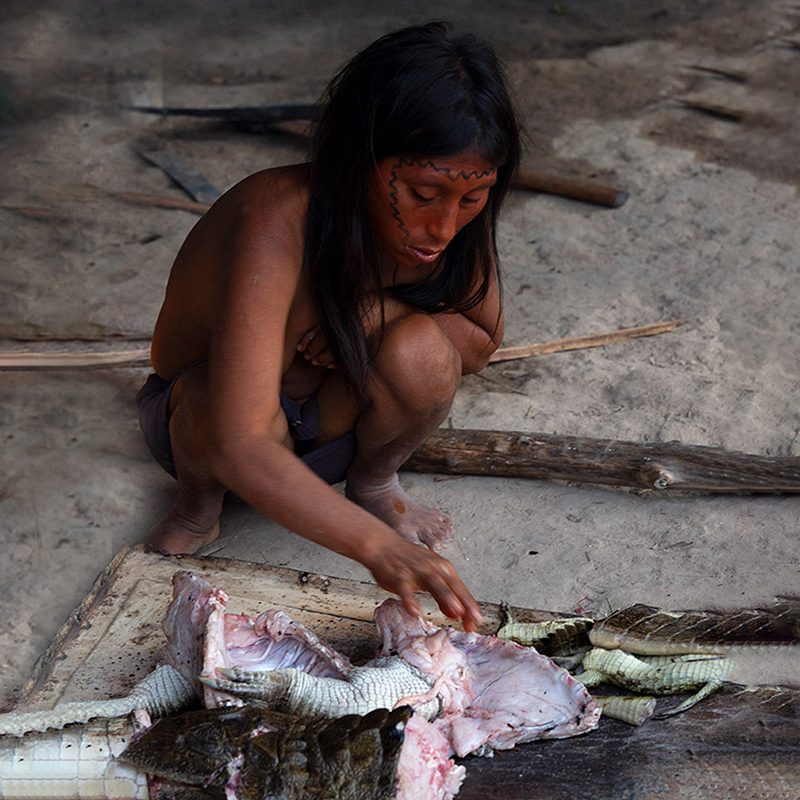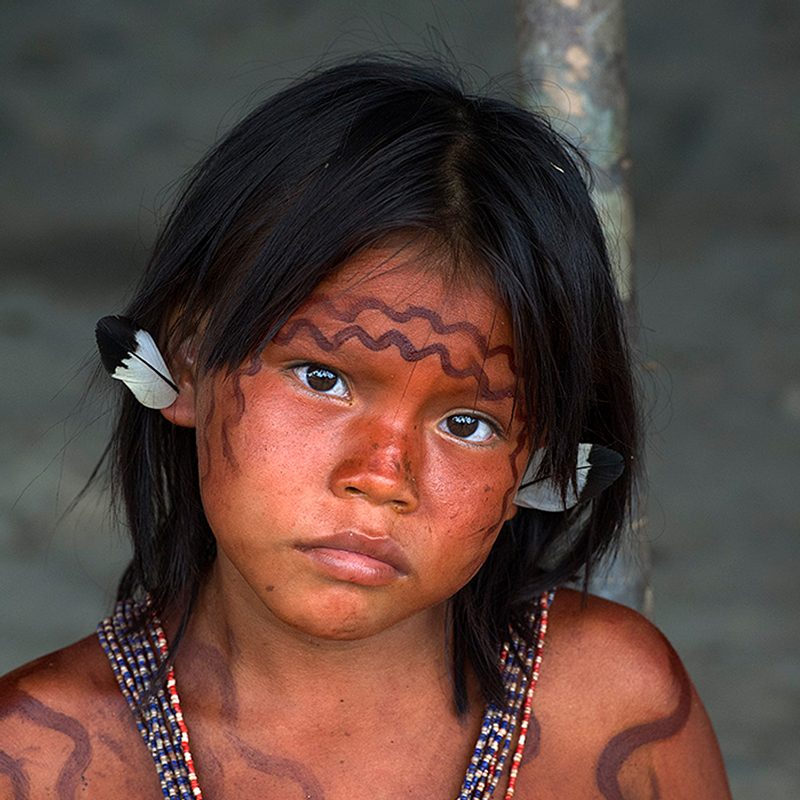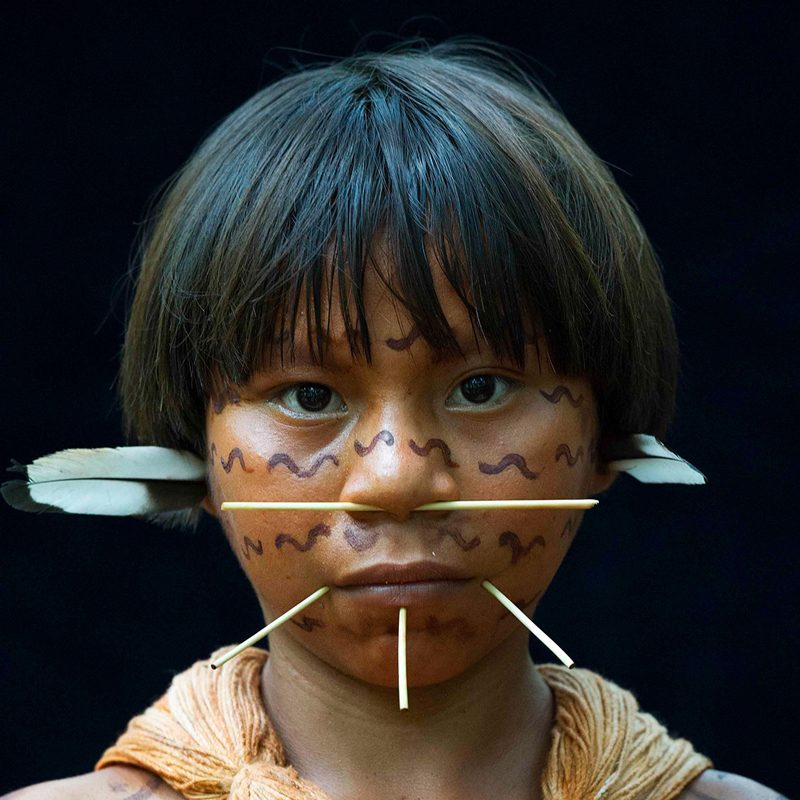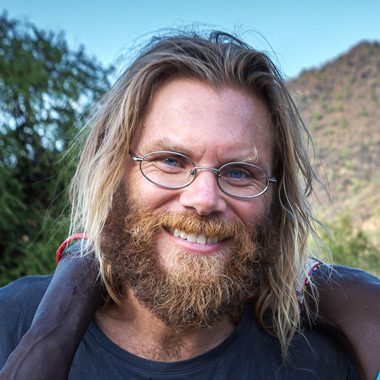The Yanomami tribe make up the largest relatively isolated indigenous people of the Amazonia (Venezuela) in South America, numbering 38,000. They live in the jungles and mountains of northern Brazil and southern Venezuela. These two areas together form the largest jungle indigenous territory in the world. In Venezuela, the Yanomami live in the Alto Orinoco-Casiquiare Biosphere Reserve.
The Yanomami live in large circular communal houses called 'yano' or 'shabono', which can accommodate up to 400 people.
The central zone is used for community activities such as rituals, parties and games. Each family has their own bonfire where they prepare and cook food during the day. At night they hang the hammocks near the fire.

The Yanomami firmly believe in equality between people. Each community is independent of the others and does not recognize any chief. Decisions are made by consensus, usually after lengthy discussions in which everyone can have a say.
The men hunt peccaries, tapirs, monkeys and a type of deer. They often use 'curare' (a plant extract) to poison their prey.
The women take care of the gardens, from which they obtain almost 80% of their food. They also collect nuts, molluscs and insect larvae and harvest wild honey, which is highly prized.
The Yanomami have vast botanical knowledge. They use about 500 plants to eat, make medicine, build houses and other artifacts.

¿Do you want to meet the Yanomami tribe of the Amazonia (Venezuela)?
Discover the world of the Yanomami tribe of the Amazonia on our next trip to Venezuela from 28th July to 15th August 2023. Click here for more trip details.

As for the spiritual world, it is a fundamental part of the life of the Yanomami. Every creature, stone, tree, and mountain has a spirit. Sometimes these are malignant and attack the Yanomami causing illness. Shamans are able to control these spirits called 'xapiripë'. By inhaling 'yakoana' (a hallucinogenic powder) they enter a visionary state, in which they meet the spirits.

As a result of increased contact and interaction with outsiders, and facing serious attacks on their rights, the Yanomami have formed regional organizations to defend their rights. In 2011, the Yanomami tribe of the Amazonia in Venezuela created their own, with the aim of protecting their territory. Last Places collaborates with Horonami through responsible tourism to empower this ethnic minority.

© Photos by Babis Bizas and Henk Bothof
